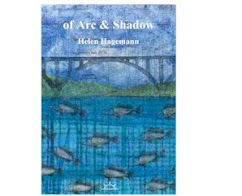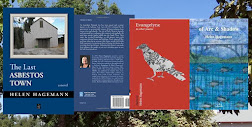The Jealous Wall, Belvedere County Westmeath
The Jealous Wall built in 14th Century to block the view of Lady Rochford seeing her accused lover.
Shrewsbury, England
Shrewsbury, an old medieval town in the West Midlands of England. It is the county town of Shropshire and River Severn.
Lough Ennell, Ireland
Lough Ennell with shallow waters has the some of the best spawning streams of any Lough in Europe.
The Ruins of Fore Abbey
Fore Abbey (630AD) is a Benedictine Abbey ruin, situated north of Lough Lene in County Westmeath, Ireland.
Tullynally Castle, 17th Century
Tullynally Castle is situated 2 km from Castlepollard on the Coole Village Road in County Westmeath, Ireland.
Sunday 30 August 2015
Friday 28 August 2015
A Poetry Competition Exploring the un(natural) UK
If something is unnatural does that make it bad or wrong?
What does natural mean anyway?
Unpacking what different people mean when they describe something as natural or unnatural could help us to have more constructive conversations about developments in science and technology.
The Nuffield Council on Bioethics and Apples and Snakes are calling on poets from across the UK to help us to explore ideas about naturalness in a creative way.
We are looking for poems that explore, delve into and reveal the meaning of the words natural, unnatural, nature and similar words in the context of debates about science, technology and medicine.
What do people mean when they say genetic modification is wrong because it’s unnatural, or food that is natural is better for you?
We want to share these poems to engage others in the conversation, so we are looking for poets to perform their work at a public event in London on Monday 30th November 2015. The event will be filmed and shared online.
Read more about why we’re looking into ideas about naturalness: download the Competition Background information.
- See more at: http://nuffieldbioethics.org/project/naturalness/performance-poetry-collaboration/poetry-competition/#sthash.pfrx6Hsz.dpuf
f something is unnatural, does that make it bad or wrong?
What does natural mean anyway?
Unpacking what different people mean when they describe something as natural or unnatural could help us to have more constructive conversations about developments in science and technology.The Nuffield Council on Bioethics and Apples and Snakes are calling on poets from across the UK to help us to explore ideas about naturalness in a creative way.
We are looking for poems that explore, delve into and reveal the meaning of the words natural, unnatural, nature and similar words in the context of debates about science, technology and medicine.
What do people mean when they say genetic modification is wrong because it’s unnatural, or food that is natural is better for you?
We want to share these poems to engage others in the conversation, so we are looking for poets to perform their work at a public event in London on Monday 30th November 2015. The event will be filmed and shared online.
Read more about why we’re looking into ideas about naturalness: download the Competition Background information.
- See more at: http://nuffieldbioethics.org/project/naturalness/performance-poetry-collaboration/poetry-competition/#sthash.pfrx6Hsz.dpuf
f something is unnatural, does that make it bad or wrong?
What does natural mean anyway?
Unpacking what different people mean when they describe something as natural or unnatural could help us to have more constructive conversations about developments in science and technology.The Nuffield Council on Bioethics and Apples and Snakes are calling on poets from across the UK to help us to explore ideas about naturalness in a creative way.
We are looking for poems that explore, delve into and reveal the meaning of the words natural, unnatural, nature and similar words in the context of debates about science, technology and medicine.
What do people mean when they say genetic modification is wrong because it’s unnatural, or food that is natural is better for you?
We want to share these poems to engage others in the conversation, so we are looking for poets to perform their work at a public event in London on Monday 30th November 2015. The event will be filmed and shared online.
Read more about why we’re looking into ideas about naturalness: download the Competition Background information.
- See more at: http://nuffieldbioethics.org/project/naturalness/performance-poetry-collaboration/poetry-competition/#sthash.pfrx6Hsz.dpuf
Monday 24 August 2015
New Website for Fremantle Press
Fremantle Press launched a new e-commerce website in August 2015. The website has been revamped to include specific sections for teachers and book clubs, while making it easier for customers to engage with authors. There's information on submitting your manuscript, books for bookclubs and you can subscribe to their enews. However, I discovered a link through Google and was able to find each post just by clicking on their google page @ https://plus.google.com/102499501993476377817/posts
Probably best to subscribe if (like me) you have a manuscript on the ready for the Hungerford which I believe will roll around again in 2016.
Keep your eye on the date below from the 2014 submission details.
The 2014 City of Fremantle T.A.G. Hungerford Award is presented in association with writingWA, The West Australian and Fremantle Press.
The 2014 City of Fremantle T.A.G. Hungerford Award award winner receives $12,000 and a publishing contract with Fremantle Press. Visit the writingWA website for entry details and submission guidelines. Submissions close 5pm Monday 30 June 2014.
Wednesday 19 August 2015
Workshop 2: Plot & Development - writing an outline for a story/novel
Second workshop in the Series: Plot & Development with Helen Hagemann
Friday, 21st August 2015 1.00-3.00pm, Room 3, Fremantle Arts Centre.
Cost: $20 OOTA $25 NON-OOTA
This workshop "How to write an outline" includes writing a novel or short story outline of one of your favourite authors, and by utilising a template of Helen Hagemann's "3 Act outline" of her novel The Ozone Cafe. There will be an exercise on writing your own "outline", as well as class discussion on choice of genre, point of view, timeline, and choice of tense.
 The writer who does not use an outline says that to do so would gut the
book of its spontaneity and would make the writing process itself a matter of
filling in the blanks of a printed form. At the root of this school of thought
is the argument first propounded, I believe, by science-fiction author Theodore
Sturgeon. If the writer doesn’t know what’s going to happen next, he argued,
the reader can’t possibly know what’s going to happen next.
The writer who does not use an outline says that to do so would gut the
book of its spontaneity and would make the writing process itself a matter of
filling in the blanks of a printed form. At the root of this school of thought
is the argument first propounded, I believe, by science-fiction author Theodore
Sturgeon. If the writer doesn’t know what’s going to happen next, he argued,
the reader can’t possibly know what’s going to happen next.
Friday, 21st August 2015 1.00-3.00pm, Room 3, Fremantle Arts Centre.
Cost: $20 OOTA $25 NON-OOTA
This workshop "How to write an outline" includes writing a novel or short story outline of one of your favourite authors, and by utilising a template of Helen Hagemann's "3 Act outline" of her novel The Ozone Cafe. There will be an exercise on writing your own "outline", as well as class discussion on choice of genre, point of view, timeline, and choice of tense.
Outlining by Lawrence Block
An outline is a tool which a writer
uses to simplify the task of writing a novel and to improve the ultimate
quality of that novel by giving him/herself more of a grasp on its overall
structure.
And that’s about as specifically as one can define an outline, beyond
adding that it’s almost invariably shorter than the book will turn out to be.
What length it will run, what form it will take, how detailed it will be, and
what sort of novel components it will or will not include, is and ought to be a
wholly individual matter. Because the outline is prepared solely for the
benefit of the writer himself, it quite properly varies from one author to
another and from one novel to another. Some writers never use an outline.
Others would be uncomfortable writing anything more ambitious than a shopping
list without outlining it first. Some outlines, deemed very useful by their
authors, run a scant page. Others, considered equally indispensable by their authors, run a hundred pages or
more and include a detailed description of every scene that is going to take
place in every chapter of the book. Neither of these extremes, nor any of the
infinite gradations between the two poles, represents the right way to prepare
an outline. There is no right way to do this – or, more correctly, there is no
wrong way. Whatever works best for the particular writer on the particular
book is demonstrably the right way.
 The writer who does not use an outline says that to do so would gut the
book of its spontaneity and would make the writing process itself a matter of
filling in the blanks of a printed form. At the root of this school of thought
is the argument first propounded, I believe, by science-fiction author Theodore
Sturgeon. If the writer doesn’t know what’s going to happen next, he argued,
the reader can’t possibly know what’s going to happen next.
The writer who does not use an outline says that to do so would gut the
book of its spontaneity and would make the writing process itself a matter of
filling in the blanks of a printed form. At the root of this school of thought
is the argument first propounded, I believe, by science-fiction author Theodore
Sturgeon. If the writer doesn’t know what’s going to happen next, he argued,
the reader can’t possibly know what’s going to happen next.
There’s logic in that argument, certainly, but I’m not sure it holds up.
Just because a writer worked things out as he went along is no guarantee that
the book he’s produced won’t be obvious and predictable. Conversely, the use of
an extremely detailed outline does not preclude the possibility that the book
will read as though it had been written effortlessly and spontaneously by a
wholly freewheeling author.
Sunday 16 August 2015
We're all ARTISTS in our family!
Very proud of my son! Shortlisted, and now Runner-up in the Think Brick (Masonary) Award. Many thanks to the Sunday Times for a front page view of this stunning house, inspired by owners' choosing the work of Iwan Iwanoff (Perth Architect). Andrew Hagemann of Fringe Architects chose the robust products of Midland Brick's concrete blockwork for the main double-leaf thernal mass walls, lintel blocks for downpipe recesses, end walls and the feature letterbox; and large concrete blocks to the main outdoor living area, lounge-balcony and pool screen wall.
"With a nod to Iwanoff, this house has used block in such a way that the house has not become a fortress."
Sunday 9 August 2015
Poem: Butcherbird in the Tuart Gums
Butcherbird in the Tuart Gums
Some days I carry a heavy weight
in a hessian bag that it's hard to get
through the trees.
Other days I'm careful to make room
under feet so that I'm not crushing leaf
litter where an anchored world lives.
The butcherbird carries the self much
lighter than a hessian bag full of stones
and can be heard singing in the Tuart
gums near my street. It seems this songbird
is not weighed down with heavy thoughts,
but rises each morning, remembering
the notes of a Bellini or Rossini opera. At
dawn she rises, practising her repertoire
like Maria Callas, similar to her bel canto,
the dramatic, wide-ranging rise and fall
of her throat, the beautiful trilling of her
voice as a Violetta in La Traviata.
Yesterday in the Tuart gums, I caught
sight of the bird again, a moth in her beak,
amongst the heavy stones, her tail waggling.
Sunday 2 August 2015
Introducing a Series of Workshops titled: Plotting & Development
Workshop Series: Plotting & Development with Helen Hagemann, Friday 7th August 1-3pm at the Fremantle Arts Centre.
Utilising Lawrence Block's "Writing the Novel" and other references, this is the first in a series of workshops to help writers understand the narrative arc of the novel / short story.
Helen aims to take writers through the many steps as a guide from the initial outline to the final stage.
Workshop 1 will look at "What Exactly is Plot?" This week we will look at graphs, including storyboarding, brainstorming and a writing exercise.
Writing the Novel: From Plot to Print
Please note: Apart from references such as a review (paraphrased) by Erin Hartshorn, acknowledgement must also be attributed to the OOTA Prose writers who have suggested these workshops!
Utilising Lawrence Block's "Writing the Novel" and other references, this is the first in a series of workshops to help writers understand the narrative arc of the novel / short story.
Helen aims to take writers through the many steps as a guide from the initial outline to the final stage.
Workshop 1 will look at "What Exactly is Plot?" This week we will look at graphs, including storyboarding, brainstorming and a writing exercise.
Writing the Novel: From Plot to Print
Block includes 'deciding which novel to write',
developing plot ideas, and developing characters, with examples of how he has
approached each. "Ideas", he believes,
arise in the mind "when the conditions are right," and then he gives
concrete examples of how to make conditions right: read the kind of things you
want to write, pay attention, remember what you're looking for. Decidedly the best chapter in the book is "developing plot ideas" and his anecdotes resonate. His emphasis on
individual patterns in writing continues throughout the book. The chapter on 'outlining' states near the
beginning, "There is no right way to do this -- or, more correctly, there
is no wrong way. Whatever works best for
the particular writer on the particular book is demonstrably the right way." Block goes on to say, "If
you feel comfortable beginning your book without an outline - or even
without a firm idea where's it's going - by all means go ahead. If you
feel more confident of your ability to finish a book with an outline in
front of you, by all means construct and employ one. As you go along,
you'll learn what works best for the particular writer you turn out to
be." Other good advice comes in his chapter on "Getting It
Written." Concern yourself with the
work of the day. Don't worry about what
comes next, or whether you'll be able to sort out tomorrow's problems. If nothing seems to come out right, write it
anyway; you can throw it out later. This book is a fun read and can be useful
for someone looking for specific pointers on process, alternative methods of
working, or just glimpses of how one author thinks about writing.
Please note: Apart from references such as a review (paraphrased) by Erin Hartshorn, acknowledgement must also be attributed to the OOTA Prose writers who have suggested these workshops!
Saturday 1 August 2015
A Wildlife Reading at the Fremantle Arts Centre
Many thanks to friend and writing colleague Sarah Leighton who photographed this selection of angles at my writing group's fortnightly reading of poetry in Canvas Cafe, Fremantle Arts Centre on Friday, 31st July.
The term wildlife may refer to the man up on the scaffold, but not so. I read a selection of poems from my children's collection titled Miniscule. It seemed the poem Lorikeet was a winner!


































